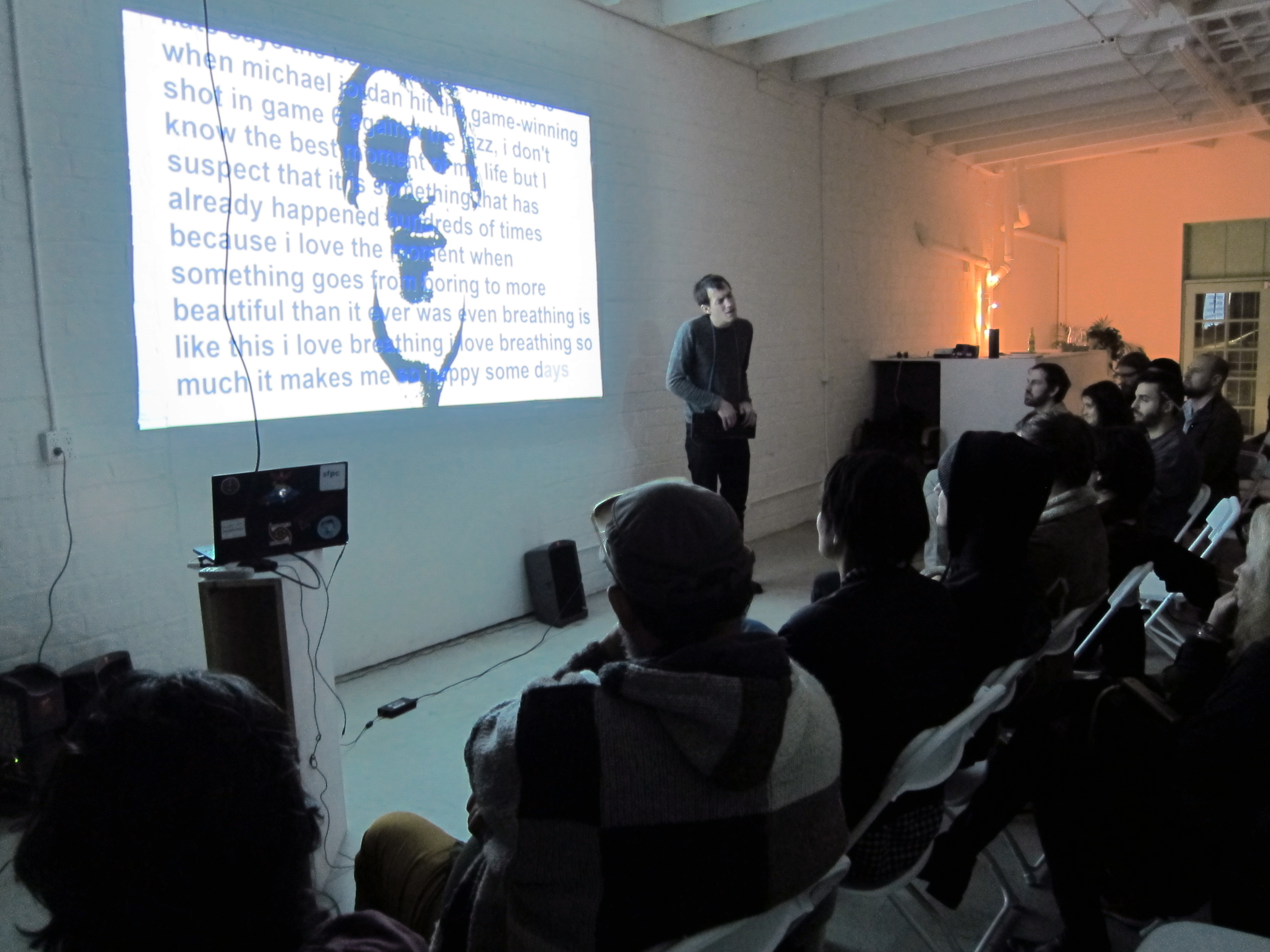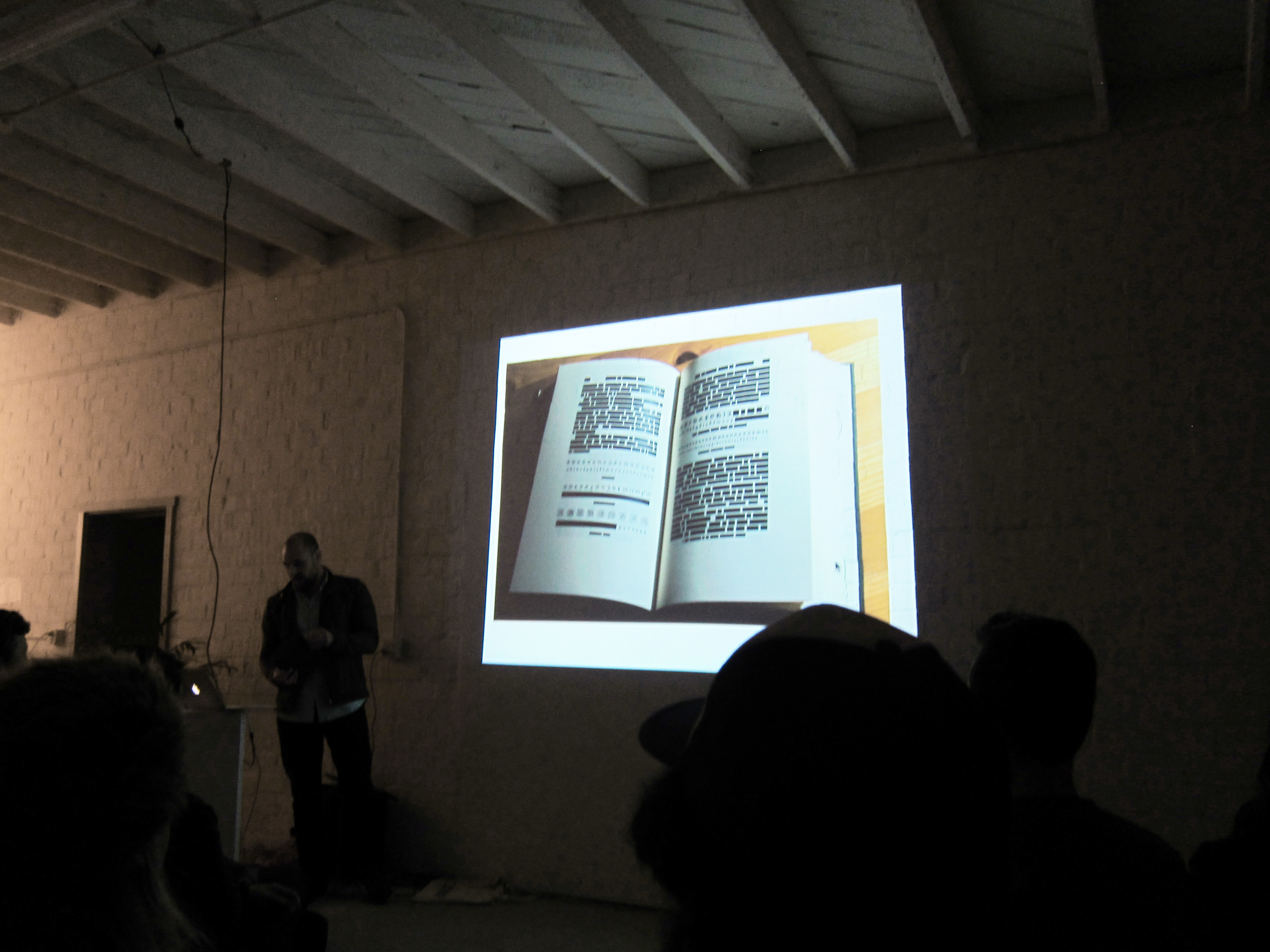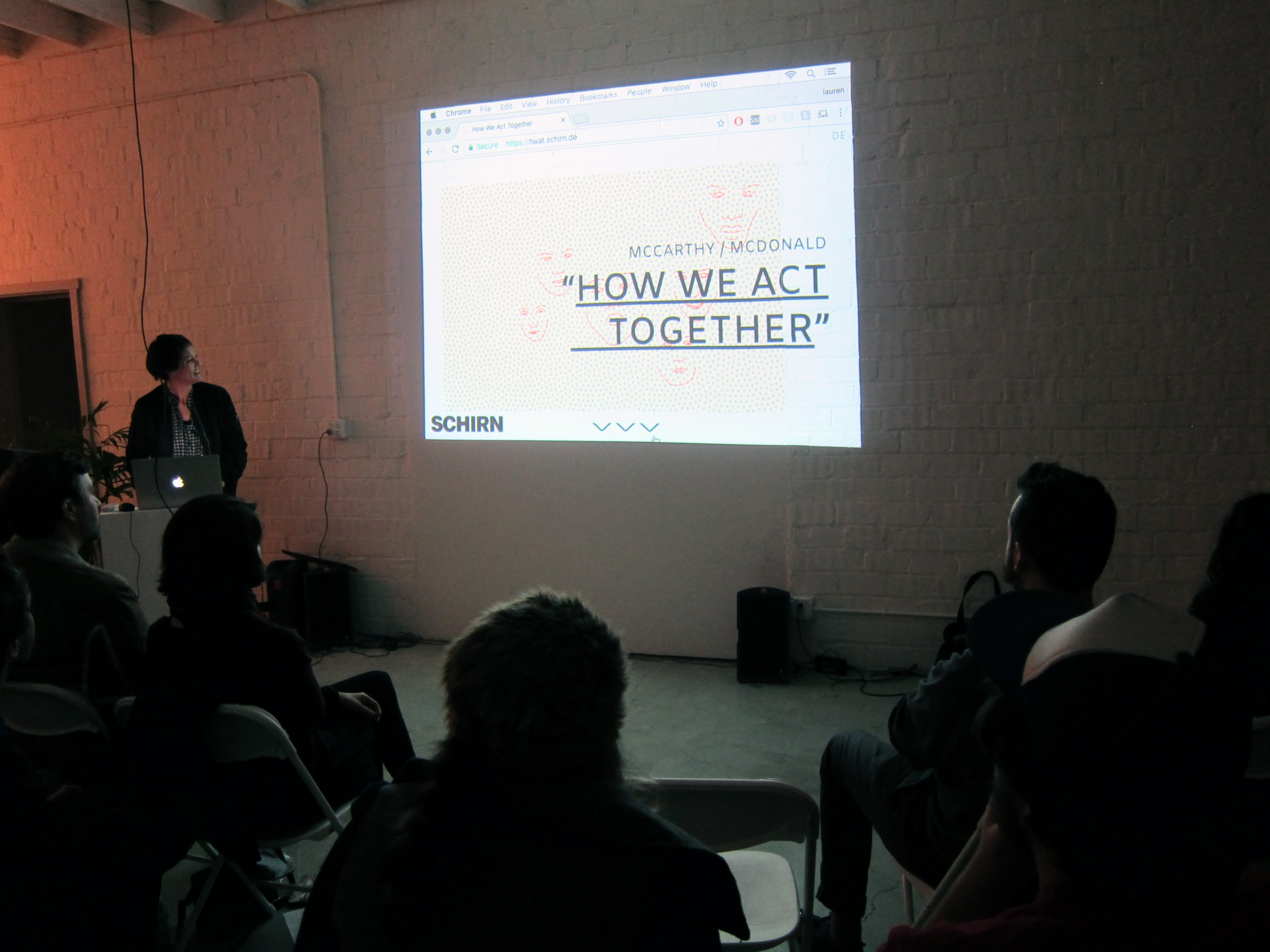WordHack West and Hotwriting Book Launch
An afternoon workshop and evening performance exploring digital poetics with Todd Anderson, in celebration of his new book, Hotwriting, from Instar Books.
The workshop taught participants how to create their own hotkey-generated poems, a style of digital performance poetry in which whole lines of text (as well as sound and images) appear when you press a single key on the keyboard. The evening performance was a Los Angeles edition of WordHack, Anderson’s monthly event series at New York gallery Babycastles, which explores the intersection of language and technology.
WordHack West kicked off with Open Projector (an open mic for digital work), followed by featured presentations by Lauren McCarthy, Tim Schwartz, and Todd Anderson.
Organized with Lee Tusman
Performers
Todd Anderson is a digital poet and web artist. He is the author of Hotwriting, a collection of playable digital poems. He is the founder of WordHack and helps run Babycastles, a video game and digital art gallery in New York. He is currently completing his MFA in Digital Language Arts at Brown University.
Lauren McCarthy is an artist based in Los Angeles and Brooklyn whose work explores current social and technological systems and structures for being a person and interacting with other people. McCarthy has exhibited at Ars Electronica, Conflux Festival, SIGGRAPH, LACMA, and the Japan Media Arts Festival, and worked on installations for the London Eye, US Holocaust Memorial Museum, and the Metropolitan Museum of Art. She holds an MFA from UCLA and a BS in Computer Science and BS in Art and Design from MIT. She is an Assistant Professor at UCLA Design Media Arts, and was previously a resident at CMU STUDIO for Creative Inquiry, Eyebeam, and Ars Electronica / QUT TRANSMIT3.
Tim Schwartz is a Los Angeles-based artist, technologist, and activist who makes works of art focused on technology, information, privacy, and how our culture absorbs changes in these areas. He received a BA in Physics from Wesleyan University and an MFA in Visual Arts from the UC San Diego. Schwartz has spent the last five years investigating what is lost as archives become digital. In 2010, he developed technology to help reunite missing people affected by the earthquake in Haiti and now organizes a group focused on family reunification after disasters.
Lee Tusman is a new media artist and curator interested in the application of the radical ethos of collectives and DIY culture to the creation and aesthetics of open-source distribution methods of digital culture. His artistic output includes interactive media, video art, net art, experimental videogames, sound art, websites, Twitter bots, and micro-power radio stations. He enjoys working collaboratively in collectives, on nomadic projects, and in ephemeral spaces. Many of his works feature themes of self-identity, mistranslation, and new methods of communication in contemporary internet culture. In addition to his art practice, Tusman has curated dozens of exhibitions and performance projects at universities, galleries, institutions, and alternative spaces including the Hammer Museum; Riverside Art Museum; Babycastles; CSU Northridge; UC Riverside; Pew Center For Arts and Heritage—New Spaces/New Formats; Space 1026; Little Berlin; Hidden City; and many others. He is a frequent guest lecturer at universities and has been interviewed by the New York Times, Al Jazeera, NPR, Los Angeles Times, NBC, Metro, CBS, AQNB, Philadelphia Inquirer, The Wire, and Smithsonian. His most recent project is Room 21, a new performance with composer Jace Clayton for the Barnes Foundation, supported by Pew Center For Arts and Heritage. He studied at Brandeis University and received his MFA in Design Media Arts from UCLA in 2017.


